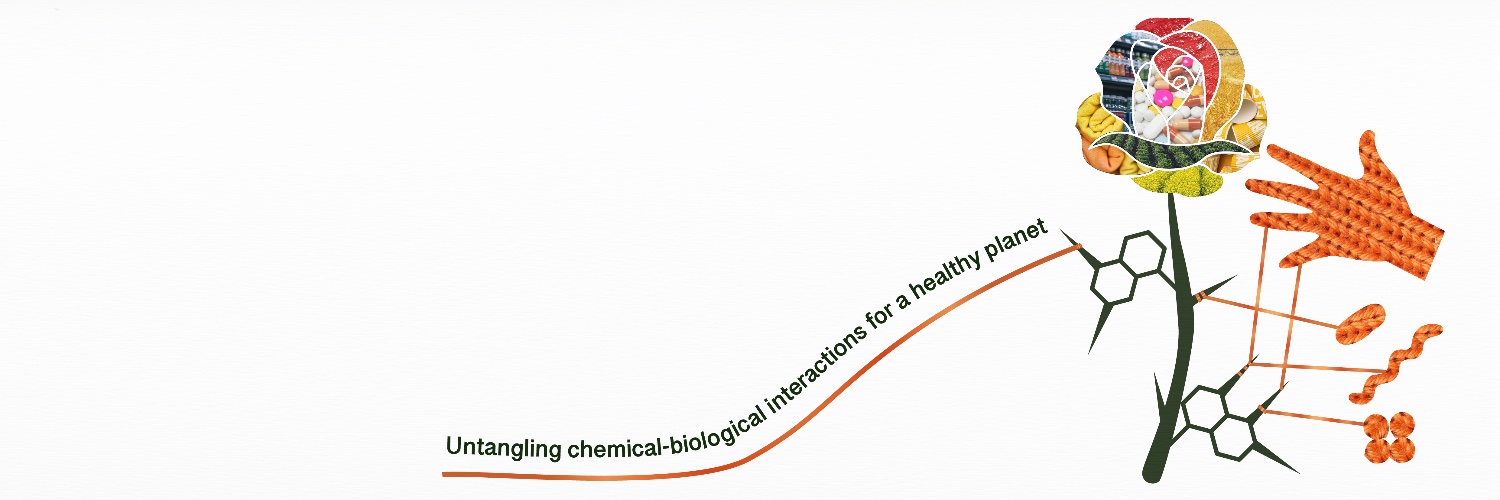
Indra Roux
@IndraRoux
Now at IndraRoux.Bsky 🦋 - Postdoc @Cambridge_Uni 🇬🇧 PhD @SMS_UWA 🇦🇺 Biotech @UNQoficial🇦🇷 #Microbiology #EngineeringBiology She/her Latinx
Fantastic to see this work published, and the interest it has sparked! A tour de force by Anna Lindell and a interdisciplinary team I was honoured to contribute to.👉 PFAS are already in our environment and bodies, we need ways to mitigate their impact🧪 nature.com/articles/s4156…
Researchers in the Patil Lab have discovered that certain species of gut bacteria can absorb PFAS. Boosting these species in our gut microbiome could be a new way to protect us from the harmful effects of PFAS. Read more here: buff.ly/4FsVFsS @Cambridge_SBS
The findings of a study in @NatureMicrobiol show the high bioaccumulation capacity of gut bacteria for PFAS, commonly known as forever chemicals. go.nature.com/4lbsAvT
Científicos de Cambridge descubren bacterias intestinales humanas capaces de absorber y acumular químicos tóxicos eternos y eliminarlos a través de las heces. ecoinventos.com/bacterias-inte…
PFAS was thought to interact only passively with cell membranes (and thus get stuck there). Our genetic analysis shows involvement of efflux pumps and thus implies active transport. We should not assume passive interactions - Biology is full of surprises!
This feat is achieved because these molecules aggregate in dense clumps, leaving the cellular machinery unaffected. These clumps are visible at single cell resolution with cryo-FIB-SIMS. Bharat lab @MRC_LMB
The study is the first report of PFAS bioaccumulation by gut bacteria. Through extensive screening, we discovered bioaccumulation by a group of prevalent human gut bacteria and across a wide concentration range (as low as 0.34 nM)
Excited to share some key findings from our latest research in @NatureMicrobiol reporting intra-cellular accumulation of #PFAS (aka forever chemicals) by certain human gut bacteria. nature.com/articles/s4156…
Gut microbes could protect us from toxic ‘forever chemicals’ Scientists have discovered that certain species of microbe found in the human gut can absorb PFAS - the toxic and long-lasting ‘forever chemicals.’ They say boosting these species in our gut microbiome could help…
Scientists discover protection from PFAS chemicals bbc.in/3TjCLlO
#Certain gut bacteria can absorb and remove #Pfas—persistent chemicals linked to health risks—suggesting the microbiome may help reduce PFAS accumulation in the body. Human trials are pending. @Cambridge_Uni @NatureMicrobiol doi.org/g9rwmm phys.org/news/2025-06-s…
🔍 Read: Within minutes of exposure, these bacterial species tested soaked up between 25% and 74% of the introduced PFAS. phys.org/news/2025-06-s…
Researchers in the Patil Lab have discovered that certain species of gut bacteria can absorb PFAS. Boosting these species in our gut microbiome could be a new way to protect us from the harmful effects of PFAS. Read more here: buff.ly/4FsVFsS @Cambridge_SBS
Toxic ‘forever chemicals’ called PFAS can’t be avoided - and they've been linked with health issues including a higher risk of certain cancers. Work led by @kiran_r_patil at the @MRC_TU has found our gut microbiome could play a helpful role in removing PFAS from our body. The…
Join us at our EngBio ECRs MeetUp on Mon 19 May with Rachel Egan @ChemCambridge @JZhangLab @ReisnerLab and Nadia Radzman @slcuplants @nadradz 🌱🧫Talk details and sign up here👉 loom.ly/hi_uMAw #photosynthesis #microorganisms #plantpeptides #foodsecurity
Join us at our EngBio ECRs MeetUp co-hosted with Cambridge Alt Protein Project on Mon 17 Mar with Mariel Alem-Fonseca @IfMCambridge &Nadia Radzman @nadradz @slcuplants 🌱 #futurefood #proteins #plantpeptides #foodsecurity #alternativeproteins Sign up at👉 buytickets.at/engineeringbio…
Join us at our next EngBio ECR’s Meet, Greet & Talks (with light lunch) on Mon 17 Feb 12pm, featuring talks from Andrew Baker @UnivCamPharm and YashMishra, Cellcraft @ymyashmishra Sign Up and talk info here👉 buytickets.at/engineeringbio…
Interested in the ecological dynamics of Enterobacteriaceae across populations? Check out our new study 🧬
Delighted to share the first peer-reviewed paper from our team @CamVetSchool @Cambridge_Uni where we investigate the ecological dynamics of Enterobacteriaceae in the human gut #microbiome: nature.com/articles/s4156… @NatureMicrobiol
Join us for our ECR Meet &Talks on Mon 20 Jan, 12pm at Hopkins Building, Dept. Biochemistry featuring 2 talks from @godwin_aleku Pharmaceutical Sciences @KCLcancer_pharm and Max Josse @MaxHamonJosse @slcuplants Sign up and more talk info here 👉 buytickets.at/engineeringbio…
Great final Engineering Biology Early Career Researcher meet-up of 2024! 🧬🛠️ We're looking for 2025 seminar speakers: PhD students, postdocs & industry/startup researchers in Cambridge. Interested or have a nomination? Contact us! More info: engbio.cam.ac.uk/ecrs
Great talks from from Juliette @BucciJuliette @DiMicheleLAB1 and Honghao Su @HonghaoS @plantsci at our EngBio ECR Meet today. Join us for our next meet on 20 Jan details here👉 tickettailor.com/events/enginee…